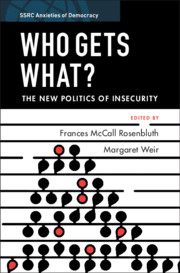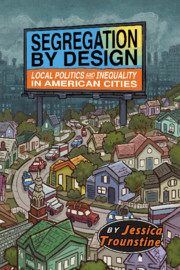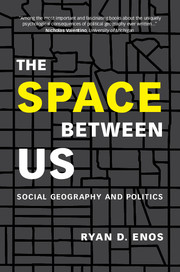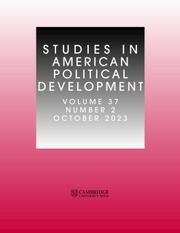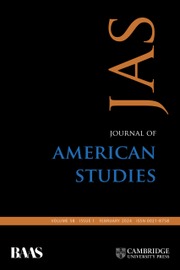Who Gets What?
The authors of this timely book, Who Gets What?, harness the expertise from across the social sciences to show how skyrocketing inequality and social dislocation are fracturing the stable political identities and alliances of the postwar era across advanced democracies. Drawing on extensive evidence from the United States and Europe, with a focus especially on the United States, the authors examine how economics and politics are closely entwined. Chapters demonstrate how the new divisions that separate people and places–and fragment political parties–hinder a fairer distribution of resources and opportunities. They show how employment, education, sex and gender, and race and ethnicity affect the way people experience and interpret inequality and economic anxieties. Populist politics have addressed these emerging insecurities by deepening social and political divisions, rather than promoting broad and inclusive policies.
- Analyzes social and economic divisions in the United States in comparison with other rich democracies
- Shows how racial conflict in the US has influenced ideas about redistribution and exacerbated inequality
- Highlights how parties in different electoral systems deal with social and economic dislocation and political fracture
Product details
August 2021Adobe eBook Reader
9781108888783
0 pages
This ISBN is for an eBook version which is distributed on our behalf by a third party.
Table of Contents
- 1. Introduction: The New Politics of Insecurity Frances Rosenbluth and Margaret Weir: Part I. People:
- 2. Race, Remembrance and Precarity: Nostalgia and Vote Choice in the 2016 US Election Andra Gillespi
- 3. The End of Human Capital Solidarity? Ben Ansell and Jane Gingrich
- 4. Public Opinion and Reactions to Increasing Income Inequality Kris-Stella Trump
- 5. Engendering Democracy in an Age of Anxiety Alice Kessler-Harris
- Part II. Place:
- 6. Keeping your Enemies Close: Electoral Rules and Partisan Polarization Jonathan Rodden
- 7. America's Unequal Metropolitan Geography: Segregation and the Spatial Concentration of Affluence and Poverty Douglas S. Massey and Jacob S. Rugh
- 8. Redistribution and the Politics of Spatial Inequality in America Margaret Weir and Desmond King
- Part III. Politics:
- 9. Electoral Realignments in the Atlantic World Carles Boix
- Political Parties in the New Politics of Insecurity Christian Salas, Frances Rosenbluth and Ian Shapiro
- 11. The Peculiar Politics of American Insecurity Jacob Hacker and Paul Pierson
- 12. The Anxiety of Precarity: the United States in Comparative Perspective Kathleen Thelen and Andreas Wiedemann
- 13. Increasing Instability and Uncertainty Among Low-Wage Workers: Implications for Inequality and Potential Policy Solutions Elizabeth Ananat, Anna Gassman-Pines and Yulya Truskinovsky.

